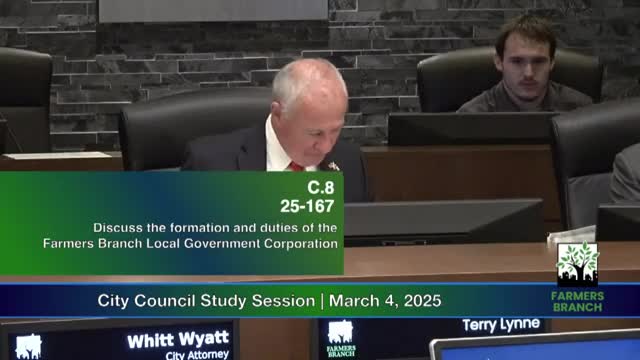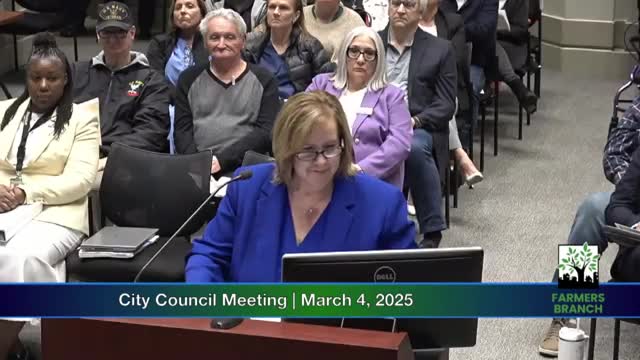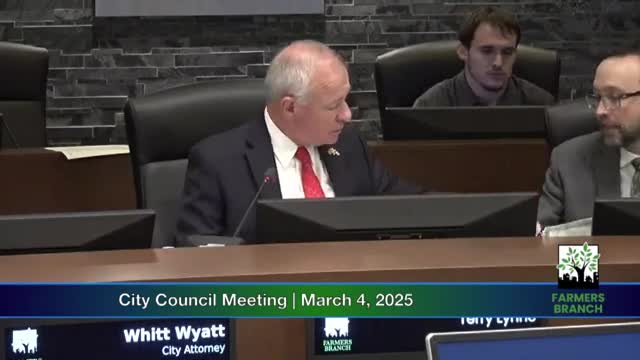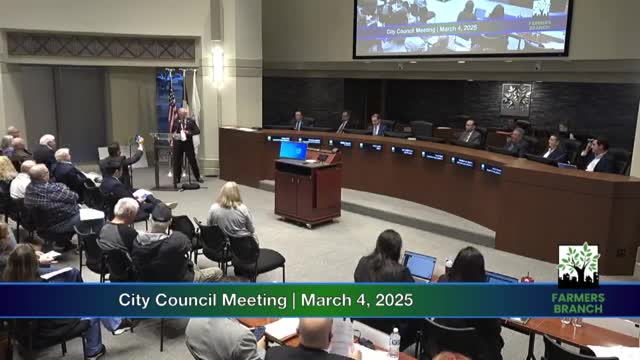Article not found
This article is no longer available. But don't worry—we've gathered other articles that discuss the same topic.

Council hears overview of Farmers Branch Local Government Corporation and its role in property transactions

Council rejects proposed city calendar after extended public debate over Pride Month recognition

Council approves $634,175 plan to rebuild Dutch Village Park playground after fire; insurance payout under review

